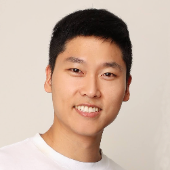
Gaang Lee, PhD
Pronouns: he, him, his
Contact
Assistant Professor, Faculty of Engineering - Civil and Environmental Engineering Dept
- gaang@ualberta.ca
- Address
-
7-211 Donadeo Innovation Centre For Engineering
9211 116 StEdmonton ABT6G 2H5
Overview
Area of Study / Keywords
Professor Construction Engineering Built Environment Human Factors AI Psychophysiology Biosignal Processing Cross-Disciplinary Engineering
About
Dr. Gaang Lee joined the Department of Civil and Environmental Engineering at the University of Alberta in 2022 after receiving his Ph.D. from the University of Michigan. His research focuses on making construction sites, buildings, and cities "sympathetic" to people so that workers and users in the surroundings can be safer, healthier, more productive and comfortable. To this end, he has been applying wearable biosensors, deep learning, adaptive signal processing, extended reality, robots, and GIS techniques and integrated them with psychophysiological and social theories, while filling important gaps in the body of knowledge in construction, computer science, and psychophysiology.
EDUCATION
Ph.D Civil and Environmental Engineering, University of Michigan, Ann Arbor (2022)
- Emphasis on Construction Engineering and Management; Graduate Certificate in Computational Discovery and Engineering
Graduate Certificate in Computational Discovery and Engineering, University of Michigan, Ann Arbor (2022)
M.S. Architectural Engineering, Yonsei University, South Korea (2012)
- Emphasis on Construction Engineering and Management
B.S. Architectural Engineering, Yonsei University, South Korea (2010)
INDUSTRIAL EXPERIENCES
Manager in Corporate Technology Strategy Team and Construction Field Management Team, Samsung C&T, South Korea (2012-2016)
- Corporate BIM Strategy
- Field Engineering & Project BIM Coordination (Projects: Mongolia Shangri-la Hotel, Samsung Proton Therapy Center, Samsung Medical Center)
Consultant in BIM Team, GS E&C Consortium (2009-2010)
- BIM Application Strategy for Turn-key Projects (GangNeung Art Center, GoYang Digital Broadcast Contents Center)
Research
please visit Gaang's research group webpage.
For a list of publications, please visit Gaang's Google Scholar page.
Announcements
Does technology benefit all equally? Well, not really. Technology spreads unevenly; there are those who cannot easily approach technology for diverse reasons (e.g., construction workers, first responders in harsh work environments where technology cannot be readily deployed, older adults and other marginalized people with lack of digital competence) and from there, a new dimension of exclusion (technological exclusion) has been happening in our society.
"Empathetics" ponders how technology can be more inclusive. Our focus is on our daily surroundings, such as workplaces, buildings, parks, roads, and sidewalks, where the colors of our lives are determined; we are deploying technologies that enables those daily surroundings to equitably empathetic with all the diverse individuals’ needs and feelings so that the surroundings can be safe, healthy, comfortable, and truly inclusive. To achieve this goal, we attend to up-to-current trends in technologies, such as human sensing, AI, robots, extended reality, and digital twins, and integrate them with psychophysiological and socio-cognitive theories. Now I am looking for students who want to join this endeavor from Jul. or Sep. 2026.
The required qualifications are:
- Empathy to humans
- Genuine desire to know and expand knowledge
- Solid motivation why she/he conducts research
- Mindset and behavior valuing diversity, equality, and inclusion (DEI)
- Research, work and leadership experiences proving the above qualities
* Knowledge/experience in artificial intelligence, extended reality, psychology, physiology, or neurocognitive science is not mandatory but would be a great asset in these roles.
The examples of the research projects students will be involved in are:
- Psychophysiological monitoring for occupational safety and productivity
- Trustable robots to maximize human robot collaboration performance
- Psychophysiological monitoring for equitable, inclusive empathetic built environments
- Extended reality and biosensing in understanding/improving human experience in construction and built environments
- Digital twins and reinforcement learning for continuously updating what-if simulations
How to apply: Please email to the hub leader, Dr. Gaang Lee (gaang@ualberta.ca). Please put a CV with a brief explanation of why you are a right fit for Empathetics.
* Please ensure that the email subject is “Empathetics Applicant.”
* All members of Empathetics will join the activism of IHT LAB (link: https://www.iht-lab.com/)